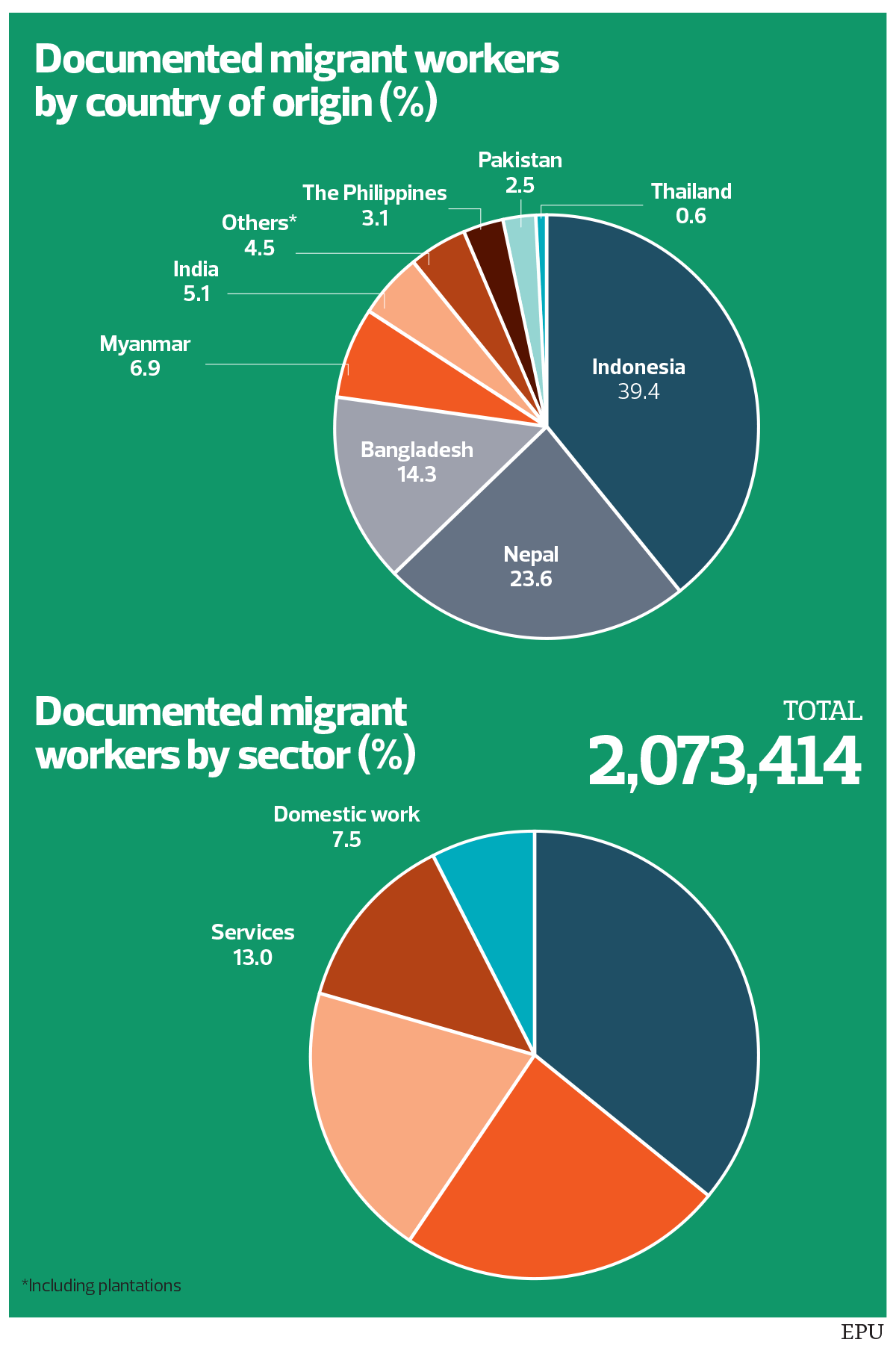
KUALA LUMPUR (Feb 5): The Edge weekly in its latest edition said Gurung Raj’s first memory of Malaysia is the cold floors of the Kuala Lumpur International Airport, where he was made to sit for hours in a long queue with his countrymen, waiting to be picked up by a local agent.
In the weekly’s cover story, writer Yen Ne Foo said Gurung had not known at the time that his next stop would be a restaurant in the city of Petaling Jaya, where he would work 16-hour days as a cook (with a two-hour lunch break in between) for the next two years.
The Edge said the 22-year-old claims he gets on well enough with his employer and colleagues but he cannot wait to leave for home this year.

It said the plan is to marry before heading to “the Gulf”.
The weekly said young Nepalis like him, citing Gurung, are giving up the comfort of their homes to have a shot of making some “real money”.
By that, he means the US dollars migrants are paid when they work in the Middle East, it said.
The Edge said the Malaysian government’s new levy rate of RM2,500, up from RM1,850, slapped on those in the service sector, has put him off any thought of renewing his contract.
Typically, the sum is the worker’s responsibility and amounts to two months of Gurung’s monthly salary. He says with a sense of missed opportunity, “We don’t pay taxes, they take taxes.”
His employer, a restaurant owner for the last 28 years, told the Edge that he is fretting over Gurung’s replacement as the Chinese New Year holidays loom. Hiring new workers, migrant or local, he says, is not as easy or affordable as it used to be. That sentiment will strike a familiar chord among Malaysian employers.
Malaysia’s reputation among migrant workers has changed from being somewhere inviting to somewhere best avoided over the years. Lengthy immigration processes, exorbitant fees charged by agents, lack of legal protection for migrant rights, unforgiving work conditions and a string of high-profile cases of abuse of migrant workers play out as gaping ironies to Malaysia’s famous culture of hospitality. Still, they came.

But the number of migrant workers willing to endure life in Malaysia could be dwindling soon.
The Edge quoted Datuk Shamsuddin Bardan, president of the Malaysian Employers Federation (MEF), as saying hardship in Malaysia is “not worth it anymore” for migrant workers.
The weekly said one reason for that is the weak ringgit. The currency has featured regularly in the headlines as one of the worst-performing currencies against the greenback over the last year.
However, it added that often overlooked, is its slide against the currencies of the countries of origin of migrant workers. They found themselves caught in unexpected foreign exchange losses when the ringgit lost 7% and 14.2% against the Indonesian rupiah and Cambodian riel respectively over the last year. Against the Bangladeshi taka and Nepali rupee, the ringgit was 7% and 5.3% lower during the same period. Employers say unfavourable rates make recruiting and retaining migrant workers more difficult.
The government’s sudden announcement that the levy on migrant workers will be raised by as much as 284% sent employers from all sectors reeling with disbelief and pleading for a rethink.
For details on the increase of the foreign worker levy, please read the Edge weekly edition for the week of Feb 8 –Feb 14 available at newsstands now.
Save by subscribing to us for your print and/or digital copy.
P/S: The Edge is also available on Apple's App Store and Android's Google Play.
- Perak Sultan hails mosque, Hindu temple's inclusive aid for Putra Heights fire victims
- U Mobile to roll out 5G network with Huawei, ZTE; sees 'similar' rates to DNB
- High Court doubles fine to RM10,000 for former UM student activist for insulting vice-chancellor
- China sees another ‘50 golden years’ with Malaysia, says Xi
- Mayu Global says bank accounts frozen in money laundering probe; director released with no charges filed
- At US antitrust trial, Meta's Zuckerberg admits he bought Instagram because it was 'better'
- F&N's first batch of 2,500 Chilean dairy cattles arrives in Gemas farm
- OpenAI is working on X-like social media platform — report
- Canada scraps tariffs for automakers that keep plants running
- Trump trade war sparks run on US warehouses with tariff loophole
